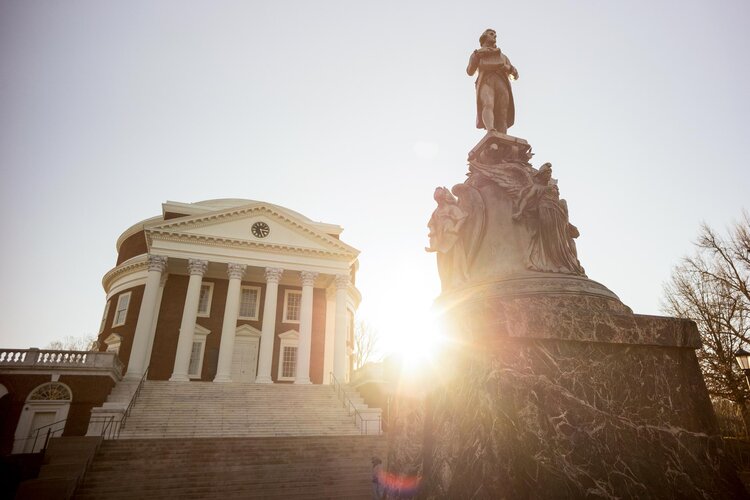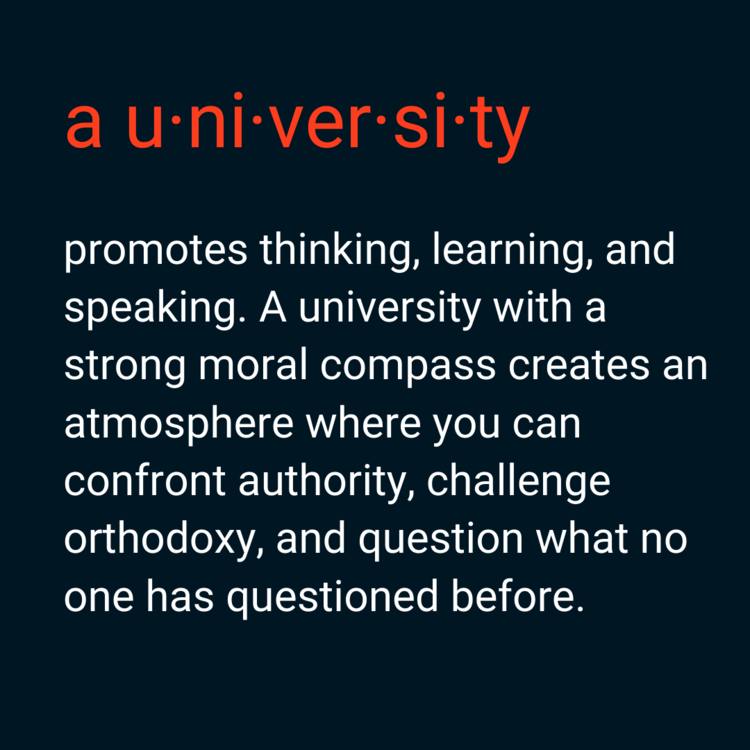Why is it that revolutions and social movements across the world regularly begin with the actions of university students and professors? From calls for secularism in Iran to greater self determination in Hong Kong, university students have stood ready to sacrifice in service of missions greater than themselves.
The role that universities have played in these social and political movements reflects the fact that universities don’t just nourish the intellectual curiosity of society’s future generations, or instill a skill-set for various professions. They also help inspire a passion for civic engagement and direct action among those who might have not yet had an opportunity to live a rich civic life. And without this robust university culture, democracies around the globe would lack an irreplaceable class of vanguards and leaders.
Unfortunately, this vision of the university faces many threats. In recent years, there has been a troubling trend of American universities establishing 4 year degree-granting colleges in authoritarian regimes. NYU has spearheaded this effort with two full degree-granting campuses, one in Abu Dhabi (which was built by exploited migrant labor) and another in Shanghai (which also faced worker protection issues). Yale has established a branch in Singapore, which at best is a “benevolent dictatorship” that places strict restrictions on free speech. Cornell’s Weill Medical College has an outpost in Qatar, an oil-rich absolute monarchy without a free press. Despite the promises of a wide latitude of spirited debate on ethical and moral issues, when professors have been critical of these regimes, they have sometimes been silenced, and even barred from entering the country.
And yet the universities have not done nearly enough to object to this behavior in order to maintain their relationships with the autocracies in question. Symbolically, what message does this send to the main campus of these universities in America? The message is clear: that it’s okay to limit free speech on college campuses and even to censor it under certain circumstances.
This troubling trend isn’t just happening overseas. It’s happening here, as well. Professors are being silenced in the name of political correctness. Some have been fired from their positions. Others have had their tenure revoked because of speech which should have been protected. In some cases, these professors were advocating for things which weren’t appropriate or were otherwise incredibly controversial, but the moment we begin censoring professors is the moment we censor ourselves by limiting the scope of opinion and debate.
And the problem goes deeper than this. There is a system-wide culture that fears robust debate in a marketplace of ideas. Take for example a recent incident at Middlebury College, where a student group, The American Enterprise Club, had invited Dr. Charles Murray, a controversial scholar to speak to students on campus. Dr. Murray’s lecture was abruptly terminated due to harassment by student protestors, and was later subjected to a violent confrontation with students that resulted in the hospitalization of Dr. Allison Stanger, the professor who had conducted the interview with Dr. Murray.

The above incident is surely not representative of what happens on college campuses, but it does reflect the perversion of our university discourse. In fact, in certain universities, there is a constant threat to silence university professors by students who accuse them of harboring bias. NYU, for example, had made available a “bias reporting hotline” that allows students to anonymously report professors to administrators—a development that those who fled oppressive regimes with “informer” cultures like Soviet Union know all too well. There’s nowhere near an equivalency, of course, but this is not the slippery slope American universities should risk slipping into. These American examples are part of a larger pattern of students seeking “safe-spaces” on campuses to shield themselves from opposing view-points.
A university with a strong moral compass cultivates an atmosphere where you can say the wrong thing, where you can confront authority, where you can challenge orthodoxy, and where you can question what no one has questioned before. The university creates a culture and society where the people can do the same, where the powerful and those who seek to abuse their power are never safe from judgment of the critical eyes of people who graduated college, who attended university, who learned liberal arts. But the moment we start to protect people from the clash of ideas, from offensive content, from even an offensive professor, is the moment we abandon that atmosphere for one of conformity and fear. The people cannot have any power in such a world. They are deprived of their main weapons: thinking, learning, and speaking.
Instead of fleeing from its identity through alliances with authoritarian countries and suppressing free speech at home, the American university must return to its status as a civic institution, providing all stakeholders—faculty and students, as well as society at large—with the tools to protect our democracy. Simply stated, the university must re-embrace its traditional and essential role that our democracy so depends on. Universities, like many other institutions in our republic, rest on public support to function effectively. In exchange, we must demand that they serve the public interest.




